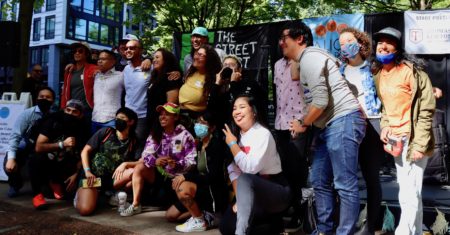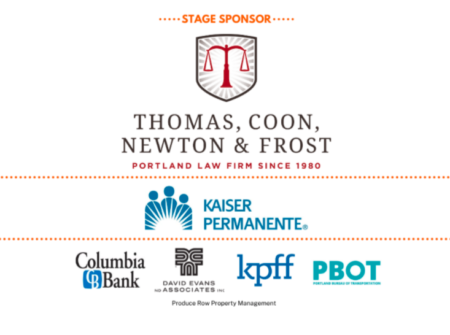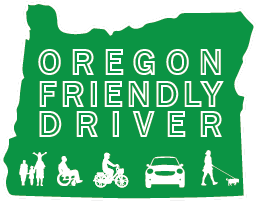Last week The Street Trust’s Policy Transformation Manager sent the letter below to the Oregon Tolling Program about the Regional Mobility Pricing Project. TST will continue to keep the pressure on leadership to use congestion pricing for what it is for–reducing congestion–not for paying for more highway lanes and car infrastructure at the expense of bike, pedestrian, and transit investments..
Given these priorities, The Street Trust is focused on advancing a regional system that manages demand and prioritizes multimodal infrastructure. We are strong proponents of the emerging use of pricing as a tool to help manage traffic demand, address urgent climate concerns, and improve equitable access to other modes in our transportation system. However, The Street Trust supports using pricing as a tool to manage transportation demand, not as a revenue generator for expanding capacity for drive-alone trips.
The language in your draft document states that the purpose of the Regional Mobility Pricing Project is “to implement congestion pricing to manage traffic congestion and to generate revenue for priority transportation projects.” This is unacceptably vague and as such, we ask that you please clearly describe the characteristics of a priority transportation project, especially as it relates to the stated goals of “support[ing] multimodal transportation choices to provide travel options and reduce congestion” and “provid[ing] benefits for historically and currently excluded and underserved communities” and “reducing contributions to climate change effects” (p. 7).
We are gravely concerned that every project listed on the Urban Mobility Office’s website is centered on freeways or freeway expansion.The Street Trust believes the future of Urban Mobility is multimodal, not auto-centric. Oregonians deserve more than a “pave now, pay later” investment in the midst of a long-overdue climate justice reckoning and recalibration.
Throughout the draft document, there is not a single mention of induced demand. A
clear explanation of this principle and its consequence is a critical element of transportation planning discussions; thus, the final purpose and need statement document must include an explanation of induced demand.
As leaders in the discussion of congestion pricing, it is important that ODOT embraces its responsibility for driving an essential cultural shift towards the elevation and prioritization alternatives to the carbon-intensive, drive-alone trip. This project is an extraordinary opportunity to help Oregonians understand that the things they’ve perceived as free have actually been quite costly, causing harm to our most vulnerable communities for decades and that without urgent, strategic, and innovative intervention, they will continue to do so.
Many thanks,
André Lightsey-Walker
Policy Transformation Manager
The Street Trust
Advocacy work is painstaking and thankless. #TST staff attend hours of public hearings, write letters, and show up to testify week in and week out so your voices are represented in these discussions. But we need your support to make sure that pricing is implemented to reduce congestion and not to pay for more highway lanes at the expense of bike, pedestrian, and transit investments.












